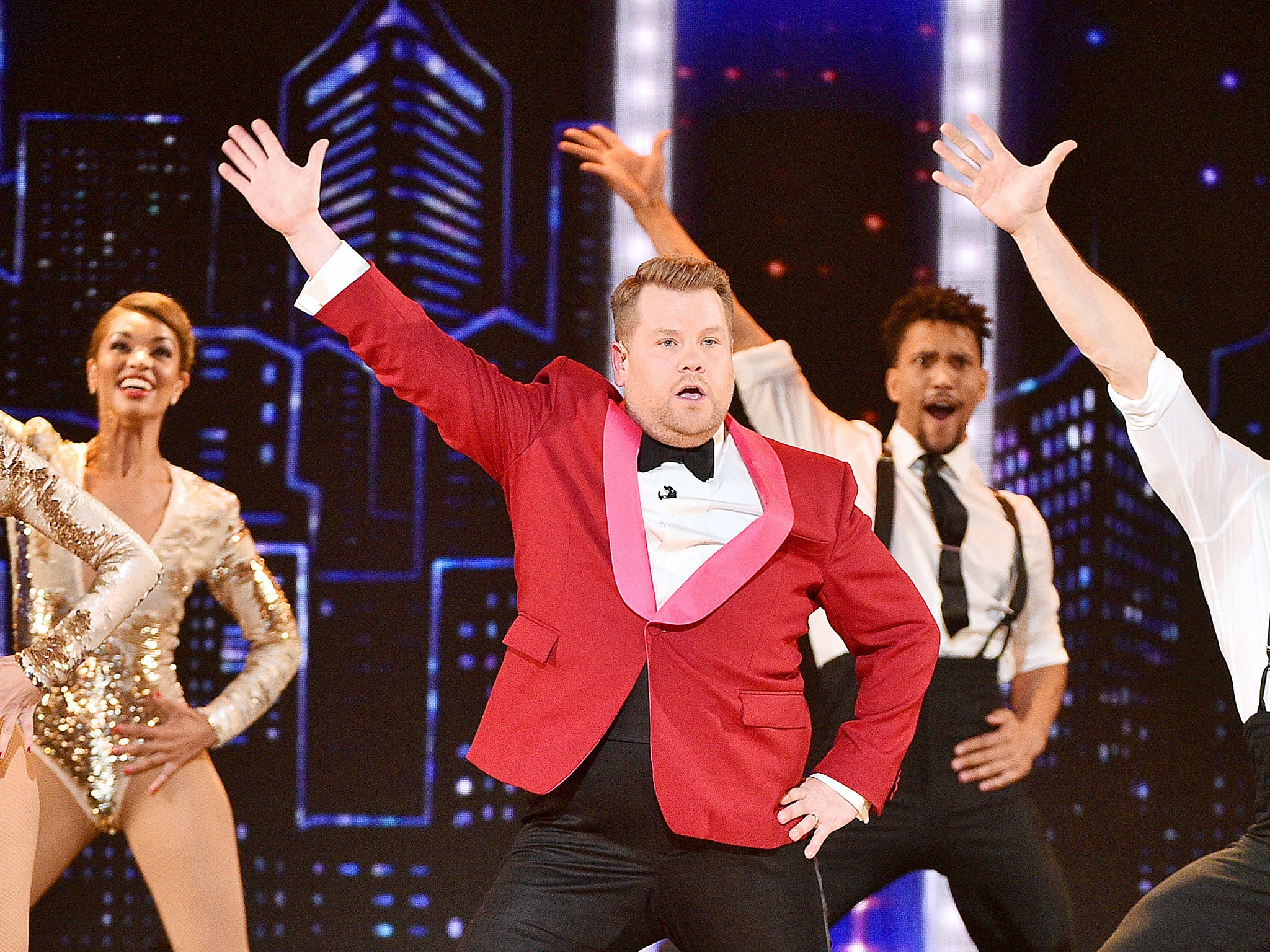No one likes awards shows anymore, and the dismal Oscar ratings prove it
Self-satisfied hosts and a total lack of spontaneity have made everything from the Oscars to the Brits some of the dullest events in the cultural calendar, writes Fiona Sturges


Your support helps us to tell the story
From reproductive rights to climate change to Big Tech, The Independent is on the ground when the story is developing. Whether it's investigating the financials of Elon Musk's pro-Trump PAC or producing our latest documentary, 'The A Word', which shines a light on the American women fighting for reproductive rights, we know how important it is to parse out the facts from the messaging.
At such a critical moment in US history, we need reporters on the ground. Your donation allows us to keep sending journalists to speak to both sides of the story.
The Independent is trusted by Americans across the entire political spectrum. And unlike many other quality news outlets, we choose not to lock Americans out of our reporting and analysis with paywalls. We believe quality journalism should be available to everyone, paid for by those who can afford it.
Your support makes all the difference.We are in the throes of what is smugly known as “awards season” and, even by the uneven standards of the entertainment industry, this year’s events have been strange and underwhelming. This is hardly surprising when Covid restrictions have meant many have faced lengthy delays and the ceremonies, such as they are, have taken place in a virtual format with minimal glitz and maximum technical screw-ups. Nonetheless, there is, it seems, a limit on the public appetite to sit at home and watch what is essentially a giant office party on TV. Why? Because awards ceremonies are awful.
To be clear: I am fully behind the concept of rewarding art in the spirit of friendly competition. While I will leave the oversights, the injustices and the politics behind awards nominations for another day, I am in favour of anything that raises the profile of the arts and helps keep the creative industries afloat. But do I wish to spend an entire evening watching stars wafting down red carpets or heaving themselves out of seats in order to tearfully thank the schoolteacher who believed in them when they were six? I do not. And do I really want to see Ricky Gervais, Jack Whitehall or a similarly self-satisfied comic pretending to heap scorn on an event while taking home a massive pay packet for fronting it? Not when I have episodes of EastEnders to catch up on.
Where once the big awards shows felt like something worth staying in for, now watching them amounts to an epic test of endurance, with the endless categories, the obsequious red-carpet interviews, the rictus smiles on the losers’ faces, the speeches lecturing us on the state of the world. The calendar is stuffed with awards ceremonies – along with the Oscars and Grammys, we can now gorge on the Baftas, the MTV Movie and TV Awards, the VMAs, the Critics Choice Awards, the National Television Awards, the Emmys, the Golden Globes and on and on. Indigestion has officially set in.
In less than a fortnight, the Brit Awards will take place at the O2, a 20,000-capacity venue that, on this occasion, will house just 4,000. Of course, it’s not the Brits’ fault that this year’s show will be sparsely attended. But it’s hard to get excited when the format already feels so tired, even if it is occasionally leavened by the odd decent song (last year’s performance of “Black” by Dave saved the event single-handed). It used to be that, in order to make things interesting, some sort of spontaneous outrage would take place – Chumbawamba dousing John Prescott in iced water; Jarvis Cocker waggling his arse during Michael Jackson’s performance of “Earth Song”; the Stones’ guitarist Ronnie Wood dealing with Brandon Block’s stage invasion by calling him a c***. Nowadays, the time lag ensures such moments are easily edited out. Last year, the closest we got to the antics of yore was Jack Whitehall suggesting Harry Styles might be sleeping with his sister. I guess you had to be there.
Apparently, I’m not the only one turned off by televised awards shindigs. This week’s Oscars suffered a massive ratings slump with US viewers numbering 10.4 million, down from 23.6 million the previous year – a figure that itself was significantly lower than 2019’s ratings. By way of comparison, when Titanic won 11 prizes at the 1998 Oscars, 57 million tuned in to watch. Were the Academy Awards a Netflix series, it would have been cancelled long ago. It’s no wonder 83-year-old Anthony Hopkins, winner of this year’s Best Actor for The Father, opted to sleep through Sunday night’s event, having been rudely denied the chance to pre-record a thank you message on Zoom.
It would make sense to blame Covid-19, and the impossibility of creating a party atmosphere during social distancing, for the drop in interest. Certainly, the current situation has thrown the ludicrousness of such enterprises into relief. As glib as it sounds, in a year in which we have clapped for the NHS, it’s hard to be quite so passionate about clapping for Hollywood actors clutching expensive goody bags. But, in the age of social media, there can be no reason for viewers to put their rear ends through the three-and-a-half-hour trauma of an awards show when they can scroll through the memes and catch the edited highlights after the event. Give me Chloe Zhao’s Oscars acceptance speech and Glenn Close twerking to “Da Butt” in the morning, and I’m all caught up, thanks.
These are tough times for those charged with the task of making awards events work for an international TV audience – so maybe they should stop trying and give up broadcasting them altogether. By all means, let the entertainment industry enjoy its ritual of shiny trophies and warm white wine. Just don’t expect the rest of us to feel quite so invested.



Join our commenting forum
Join thought-provoking conversations, follow other Independent readers and see their replies
Comments